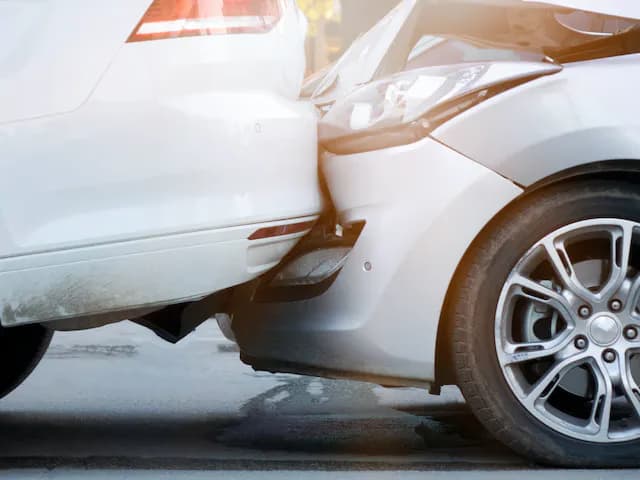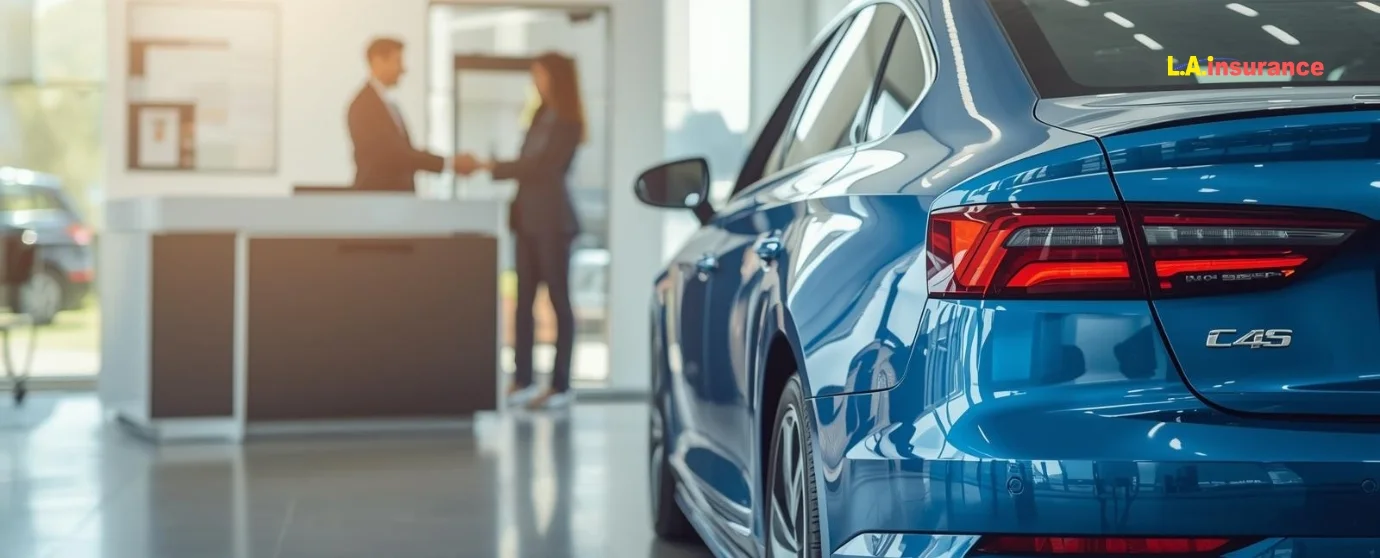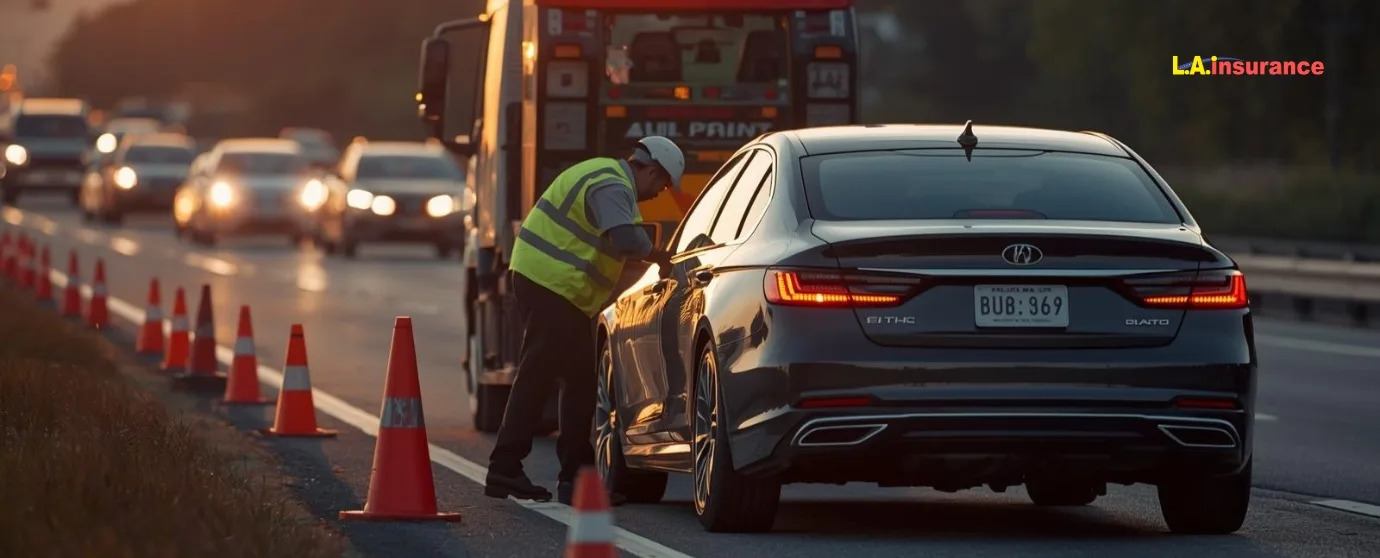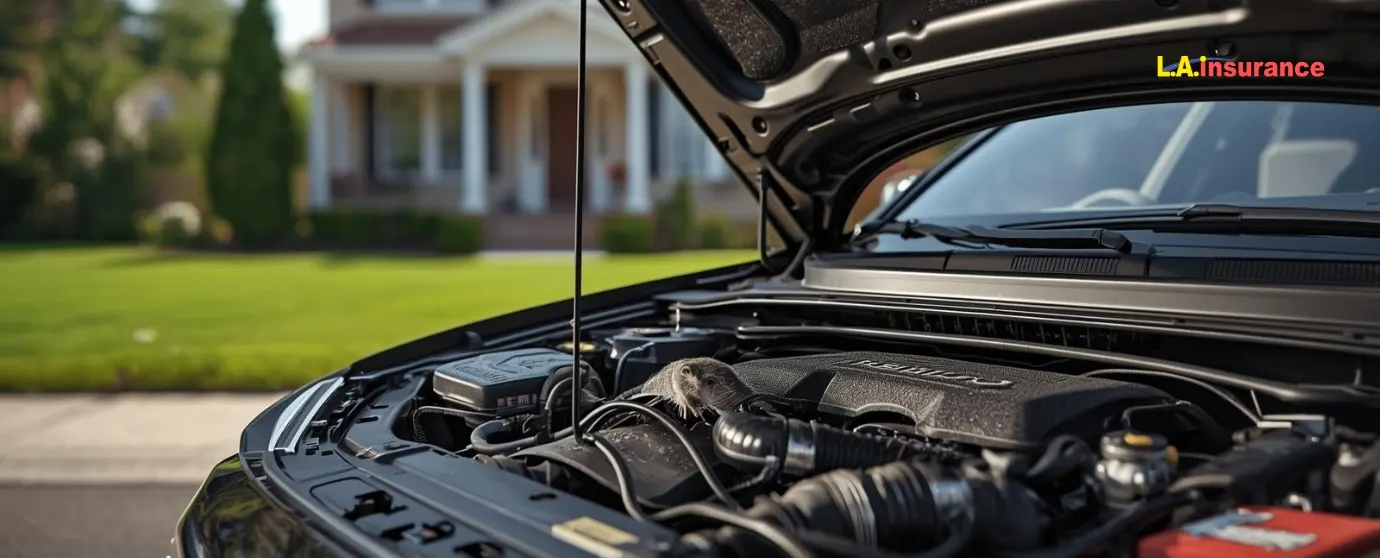
Publish Date: 11-05-2025
Auto Insurance
Last Updated: 21-07-2025
What Is the Difference Between Collision and Comprehensive Insurance?
Collision and comprehensive coverage are optional, which means they are not required by state law. As their names suggest, both these coverages are different and protect your vehicle from many risks. Collision insurance covers your vehicle from various accidents, such as hitting another vehicle or an object. Comprehensive insurance, on the other hand, pays for damages beyond accidents, like theft, vandalism, or natural disasters.
Although different types of car insurance coverage exist, these two coverages are most important after ensuring you have liability auto insurance, which is required by law. Keep reading this article to understand the difference between collision and comprehensive insurance so that you can choose the right one based on your situation.
Difference Between Comprehensive and Collision Insurance
Both coverages help pay for damage to your car, but they cover different situations. That’s why the major difference between collision and comprehensive coverage comes down to how the damage occurred. Collision insurance covers damages when your car hits another vehicle or an object. If you back into a pole, hit another car, or crash into a guardrail, the repair or replacement costs for your vehicle will be covered under collision insurance. The best thing about this coverage is that it applies even if you are at fault.
If you simply maintain state-mandated liability auto insurance, you’ll only be covered for accidents caused by another driver. However, it can become very complicated to get reimbursement in some at-fault states, as it’s difficult to prove who caused the accident. Collision auto insurance gets you out of this trouble and makes sure you’re always covered whenever an accident happens, even if it’s a single-vehicle accident or a hit-and-run case. That’s why many drivers in the U.S. feel the need for this optional coverage.
Here's what collision insurance covers damages for:
- Accidents with other vehicles
- Hitting objects like fences, poles, or curbs
- Rollovers, even if no other car is involved
- Damages from potholes
In contrast, comprehensive car insurance covers damage from events unrelated to crashes. Situations that aren’t in your control are mostly covered by this insurance. For example, if a flood hits your area and damages your car battery, or if the car battery is stolen, comprehensive car insurance pays for it. Similarly, if a natural disaster (e.g., floods, storms, hail) strikes or a tree branch falls on your car’s windshield, this coverage will help cover the costs.
Here's what comprehensive insurance covers:
- Theft or vandalism
- Fire or explosion
- Hail, floods, hurricanes, and other severe weather
- Falling objects, such as trees or debris
- Animal collisions, like hitting a deer
Learn More: What Is Collision Insurance?
Comparison Table: Comprehensive Vs. Collision Insurance
Feature | Collision Insurance | Comprehensive Insurance |
What It Covers | Pays for damage to your car from crashes. | Pays for damage to your car from non-crash-incidents. |
Causes of Damage | Hitting another car, object, or rollover, parking lot accidents, hit-and-run | Theft, vandalism, natural disasters, falling objects, fire, animal collisions. |
Fault Requirement | Covers damage regardless of fault | Covers damage beyond driver’s control |
Required by Law | No, lenders may require it if your car is leased or financed. | No, lenders may require it if your car is leased or financed. |
Repairing or Replacing | Help with repairing or replacing your car after an accident. | Covers repairing or replacing damage from theft, weather, or vandalism. |
Common Deductible | $500 to $2,000 | $100 to $2,000 |
Cost | Vary, roughly $300 to $900 per year | Vary, roughly $100 to $500 per year |
When to Drop It | If your car’s value is too low | If your car value is too low or the risk of weather damage, and the theft rate is rare. |
Is It Part of Full Coverage | Yes, It’s part of full coverage | Yes, it’s part of full coverage auto insurance |
Best for | Drivers who want financial protection from crash-related damage regardless of who is at fault. | Drivers concerned about vehicle theft, weather damage, animal collision, fire, or any unexpected events. |
Collision Vs. Comprehensive Coverage Deductible
A deductible is the amount you agree to pay your insurer if your vehicle is damaged in an unexpected event, and you file a claim. Both comprehensive and collision coverage have separate deductibles, and you choose the amount when purchasing a policy.
In collision insurance, you pay a deductible when your car is damaged in an accident. For example, if repairs cost $1,500 and your deductible is $500, you pay $500, and your insurance company covers the remaining $1,000.
Although higher deductibles lower your monthly premium, they increase your pay out-of-pocket costs if you file a claim. Most collision insurance covers damages with deductibles ranging from $5,00 to $2,000. Some states may have minimum deductible requirements.
On the other hand, a comprehensive deductible applies when damage occurs due to a natural disaster, theft, or vandalism. If a storm damages your car and repairs cost $2,000 and your deductible is $300, you pay $300, and your auto insurance provider covers the remaining amount.
You will find the most common comprehensive deductible amount ranging from $100 to $2,000. Some insurers even offer zero-deductible options for windshield repairs under comprehensive coverage.
While choosing a deductible for comprehensive or collision coverage, remember the following:
- A higher deductible lowers monthly premiums but increases payout of pocket after an accident.
- A lower deductible means smaller out-of-pocket costs but higher monthly premiums.
- Some insurers require a higher deductible if you have a history of claims.
At L.A. Insurance, we offer affordable full coverage auto insurance for both drivers with high risks and clean driving records. Our full coverage policy includes liability, collision, and comprehensive coverage.
Pro Tip: Choose a lower deductible for comprehensive coverage compared to collision coverage. We recommend selecting at least a $1,000 or higher deductible for collision coverage and a minimum of $100 for comprehensive insurance coverage. This is because the average auto collision insurance claim is $4,822, which is much higher compared to comprehensive insurance claims of $1,284 (via the National Association of Insurance Commissioners).
Collision Vs. Comprehensive Insurance Cost
Collision insurance costs approximately 122% more than comprehensive insurance. This means you can get comprehensive insurance cheaper, likely by adding just a hundred dollars a year. According to Forbes, the average cost of collision coverage is $814, while comprehensive coverage is $367 per year.
However, this rate can vary widely based on your age, vehicle's value, driving history, previous insurance claims, and the state you're living in. If you live in an area prone to weather hazards and higher crime rates, particularly theft rates, your comprehensive insurance rate is likely to increase. Also, if your zip code statistically indicates higher accident claims or collision-related crash frequency, you'll face a higher rate for collision insurance.
In general, collision insurance is more costly than comprehensive insurance because it covers damages caused by crashes, which happen more frequently than non-collision events. Since accidents are common, insurers see them as a higher risk. In contrast, comprehensive insurance covers less frequent events. That's why insurers charge lower premiums for it. However, certain factors, as mentioned earlier, can influence the cost.
Do I Need Both Comprehensive and Collision Insurance?
Whether you need both collision and comprehensive coverage depends on your car’s value, financial situation, and risk factors. While neither is required by state law, lenders usually mandate them for financed or leased vehicles. If you own your car outright, deciding on these insurance coverages eventually comes down to your personal needs.
Here’s when you should keep both coverage:
- If your car is financed or leased. (Read more: Do I need full coverage on a financed car?)
- Your car is expensive to repair or replace. Newer or high-value cars have higher replacement costs, which makes both coverage worthwhile.
- You live in an area prone to disasters, theft, or vandalism.
- You drive frequently. More time on the road raises the accident risks and consequently the need for collision insurance.
Here’s when you can drop one or both coverage:
- Your car’s value is low. If your vehicle is less than $3,00, paying for these insurance coverages may not make sense.
- You may have enough savings to pay out of pocket for repairs or replacement.
- You rarely drive. If your car stays in a garage and is rarely used, collision insurance may not be useful.
Learn more: When to drop collision insurance?
What Is the Difference Between Comprehensive and Collision Insurance: Key Takeaways
- Collision insurance covers damage from accidents involving another vehicle or object.
- Comprehensive insurance covers non-collision events like theft, fire, vandalism, and natural disasters (e.g., flood, storm, hail damage).
- Collision insurance is usually more expensive than comprehensive car insurance.
- Both insurance coverages have deductibles, with comprehensive car insurance typically offering lower ones.
- Neither coverage is required by law, but lenders mandate them for financed vehicles.
- If your coverage has high replacement costs, keeping both coverages is a good idea.
- Dropping both coverages may make sense if your car’s value is below $3,000.
- Choosing a higher deductible lowers your premium but adds payout-of-pocket costs.
- If you rarely drive or have enough savings, reconsider whether you need collision and comprehensive coverage.
If you need to insure your vehicle for collision or comprehensive insurance with the most affordable insurance agency, contact L.A. Insurance today. Find an agent or dial us at (888) 500-6065. Get a cheap car insurance quote online and receive proof of insurance within the same day.
Frequently Asked Questions (FAQs)
1. When Should I Drop Both Collision and Comprehensive Insurance
You should drop comprehensive and collision coverages if your car’s replacement costs are too low. Besides, if your vehicle’s market value is under $3000, paying for these insurance coverages may not be a good idea financially. However, it is not allowed to drop these coverages if you bought the car on loan or lease.
2. What is the Difference Between Collision, Comprehensive and Liability
Collision Insurance covers damages from crashes. And comprehensive insurance covers fire, theft, and weather events. However, liability insurance covers damages and injuries you cause to others. Plus, liability insurance is required by law, while collision and comprehensive coverages are optional.
3. What Is Full Coverage Insurance?
Full coverage includes collision and comprehensive plus liability insurance. Besides, it protects against accidents, theft, vandalism, and natural disasters. However, full coverage isn’t any specific policy rather it’s a combination of insurance coverages that offer extensive protection.
4. Is It Better to Have Collision or Comprehensive?
It depends on your needs. If you have an expensive vehicle or if it’s leased or financed, keeping both coverage is a smart as well as mandatory thing to do. However, for low-value cars, it’s not a better idea to have collision insurance. If you live in an area with high traffic rates, property crime rates, especially theft rates, and severe weather events, you should have comprehensive car insurance.
5. Is Hitting an Object a Collision or Comprehensive?
If you hit an object with your car, it falls under collision insurance coverage. Plus, it applies whether you hit another vehicle, a fence, or a pole. Conversely, if an object falls on your car, like a tree branch, comprehensive insurance covers the damage instead.
6. Is Hitting a Mailbox Comprehensive or Collision?
Hitting a mailbox falls under collision insurance coverage. It also covers accidents involving
stationary objects like poles, fences, or signs. However, if a mailbox falls onto your car due to a natural disaster, comprehensive insurance will cover the damage.
7. Is It Worth Having Comprehensive Insurance on an Old Car?
It depends on the car’s value. If replacement costs are low, it’s better to pay from your personal fund. But if your area has high theft or severe weather risks, it’s worth maintaining comprehensive auto insurance.
Editorial Disclaimer
The information provided on this blog is for general informational purposes only and does not constitute professional insurance, legal, or financial advice. Coverage and rates are subject to individual eligibility, underwriting guidelines, and state availability. For specific questions regarding your policy or to get an accurate quote, please contact a licensed L.A. Insurance agent directly. We're an independent agency and not a direct insurance carrier. For more information on how we operate and handle your data, please see our Terms and Conditions and Privacy Policy.
Tag :
Auto insurance








